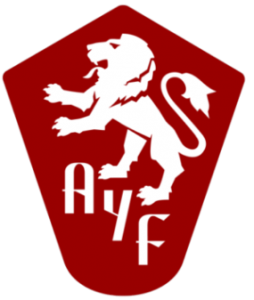When Genocide Turns into Suicide
By Skeptik Sinikian
 When I was first asked to write a guest column for Haytoug that addressed the issue of a “white genocide” and the perceived evils of assimilation, I was tempted to write this entire piece in Kra’par (Classical Armenian). After all, it is my humble opinion that if you do not know how to read Kra’par, then you’re not a “real Armenian.” Then I thought to write it in Armenian but I couldn’t decide what language to water our mother tongue down with – Turkish? Arabic? Russian? Farsi perhaps? But then I thought, “The one language that we all can or should understand is English .” – plus, I don’t know how to use an Armenian keyboard or anything that resembles one. So using the King’s English, let’s address the issue of Armenian assimilation and the “jermag chart.” (I hope I’m not the only one who sees the irony in that.)
When I was first asked to write a guest column for Haytoug that addressed the issue of a “white genocide” and the perceived evils of assimilation, I was tempted to write this entire piece in Kra’par (Classical Armenian). After all, it is my humble opinion that if you do not know how to read Kra’par, then you’re not a “real Armenian.” Then I thought to write it in Armenian but I couldn’t decide what language to water our mother tongue down with – Turkish? Arabic? Russian? Farsi perhaps? But then I thought, “The one language that we all can or should understand is English .” – plus, I don’t know how to use an Armenian keyboard or anything that resembles one. So using the King’s English, let’s address the issue of Armenian assimilation and the “jermag chart.” (I hope I’m not the only one who sees the irony in that.)
I find myself growing increasingly perturbed by the term “white genocide.” First of all, we can’t use the word genocide to describe a trend where Armenians living in the United States are losing their sense of ethnic identity because nobody held a yatağan to your neck and forced you to name your child a non-Armenian name or forced you to stop speaking Armenian. Not to mention that comparing it to an actual genocide is not only disgusting but insulting to the memory of countless Armenians who perished or the thousands who survived the Turkish persecutions. Let’s call it what it is – cultural suicide. We can try to blame television, music, cross-cultural dating or marriage, the cultural vacuum created by capitalism or other theories but the reality is that we have no one to blame but ourselves – or as the comic strip Pogo once wrote – we have met the enemy and he is us.
We are our own catalyst of assimilation because we not only set the bar very high for being a “real Armenian” but we also fail to reach our own markers. For instance, many Armenians consider the speaking of Armenian as being a critical element to staving off assimilation, yet who do you consider to be more Armenian – a person who doesn’t speak the language but sends money to Armenian charitable organizations, calls their member of Congress to urge support of Armenian issues, and patronizes Armenian-owned businesses or the person who does none of the stuff the first guy did but instead listens to Armenian music, speaks Armenian and associates only with other Armenians. Popular opinion would label the first person as assimilated and the latter as Armenian. But who is doing more to advance the Armenian Cause? If you said the first guy, then move up to the head of the class. We agree on that. Also, of those who said the second person is more Armenian, I would want to know how extensive your own knowledge is of core topics of Armenian competency – literature, art, political history, grammar, spelling, amongst other issues and topics. I would guess that even the kids who go to Armenian schools in America and learn to read and write the language have a reading proficiency and vocabulary that does not go beyond the 5th grade level. But let’s move on.
Why should I care if a person speaks fluent Armenian but won’t take the time to make one phone call to a politician who can vote to contribute tens of millions of dollars for foreign aid to rebuild Armenia and Artsakh? This question may sound tired and redundant but it’s necessary to ask and understand the answer. After all, this discussion is important but the people who would benefit the most from participating in it, probably would never pick up an issue of Haytoug unless there was a picture of the Kardashian sisters on it. The answer is, that we shouldn’t. I’d rather have 1000 Armenians who are informed on American issues and process and are engaged in making a difference than 100,000 who don’t care about anything other than expanding the ghettos of their mind.
So if we can agree that a person’s true Armenian identity is defined by their commitment to preserving the culture and society of the Armenian people in Armenia and worldwide, then all the other preconditions (spoken and written fluency in Armenian, listening to only Armenian music, eating only Zankou Chicken) are irrelevant.
Having said that, I understand that an appreciation for all things Armenian isn’t exclusive from the efforts to preserve them or be an advocate for all things Armenian. But we can’t deny a path to either by being overly judgmental of people who are trying to return to their ancestral roots or labeling people on the peripheries of our community as “white washed” or “assimilated.” I’ve seen it happen on more than once, where a person who knew very little of their Armenian ancestry began to explore his or her roots and this led eventually to a trip to Armenia and eventually a desire to learn how to speak Armenian. In fact, one person I’m thinking about actually moved back to Armenia to help the country develop and improve.
So what term do we use to describe this phenomenon? Definitely not “white genocide.” And there isn’t a term that’s familiar to us because we are too focused on the negative aspects of our community than on the positives. Don’t worry, it’s in our nature to focus on the negative. Spending 4000 years as history’s punching bag will drive that emotional trigger deep into your DNA. The good news is that it’s not permanent. And just by reading Haytoug, you’ve already committed yourself to a struggle whose outcome accepts nothing less than success for Armenians worldwide.
But being involved in the Armenian Youth Federation or any other youth group doesn’t immediately absolve one of responsibility of preserving and caring for the Armenian people and land. Instead, of those who have great power and organizing tools, much is expected. And living in a society in America which emphasizes consumer conformity more than individuality and portrays ethnicity as a liability makes it hard to adopt the aspects of American culture, which will translate into success for the Armenian people of the United States and abroad. But it is necessary.
Yes, some assimilation or “acculturation” is necessary for success. The most important things in life are usually the hardest to do and act upon. Preserving our passion for Armenian causes and mastering the English language and American customs are equally important tasks for success. Let’s be honest with ourselves. If an Armenian-American is ever going to get elected to Congress from anywhere in the United States – I guarantee you that it won’t be a garlic breathed someone who wears a lot of jewelry and listens only to Tata. It will be someone who is articulate and acculturated and who can speak about John Adams and Abraham Lincoln with as much ease and comfort as they can talk about Gomidas or Simon Vratsian.
So rather than worrying about how we can create a society where we sell out barahanteses and Armen(chik) concerts week after week after week, let us instead think about how we, ourselves, can engage our adopted homeland on its own terms and perhaps in the process, get it to see things our way and maybe adopt or absorb the best that our culture has to offer as well.
Skeptik Sinikian is the property of Asbarez Newspaper. He is on loan to Haytoug and will be promptly returned upon the completion of this issue. Skeptik loves baseball and baklavah. His life mission is to educate and inform as many non-Armenians about the medicinal benefits of soujoukh sausage as he can. You can reach him for comments or questions at SkeptikSinikian@gmail.com


Leave a Reply
Want to join the discussion?Feel free to contribute!